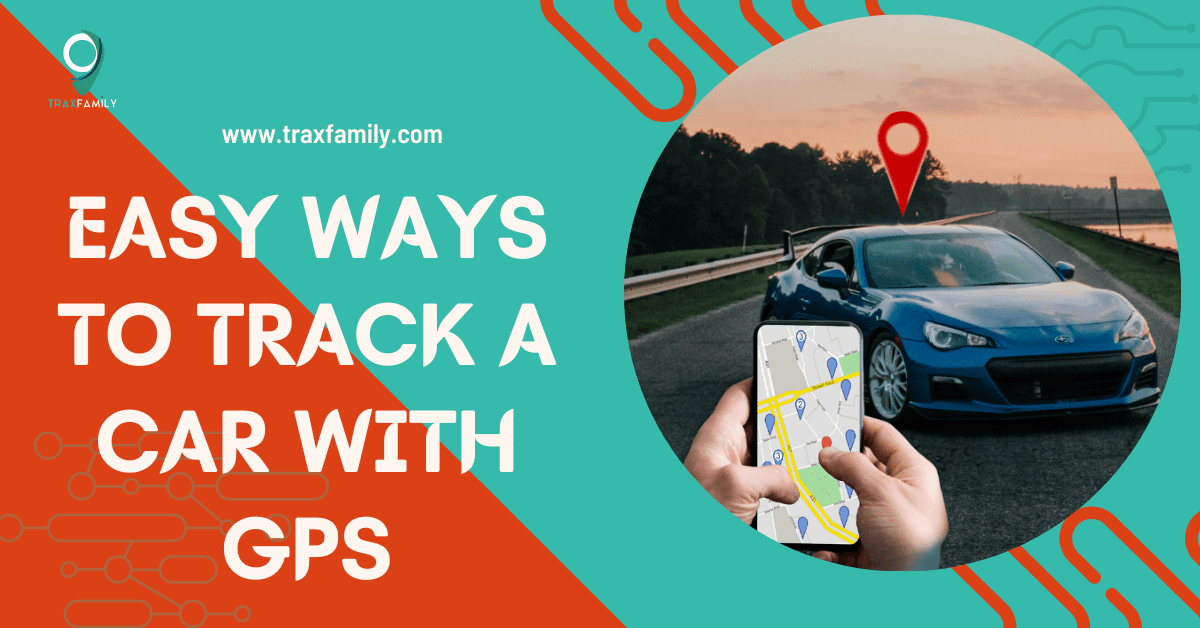Do you want to keep an eye on your teenager’s driving habits who have learned to drive recently? Or do you have trouble remembering where you parked your car? Or do you need to track your commercial fleet?
There are several ways to track a car using GPS that fulfills the above-stated requirements. For example, you could invest in a GPS car tracker that will provide you with real-time location details. Depending on the tracker, you could get additional benefits like trip history, driving behavior, and vehicle diagnostics.
If you are looking for the cheapest way to GPS track a car, it can be using mobile tracking apps. You can leave your old phone with GPS capabilities in your vehicle. Then, you can pair it with your primary phone and use it to track your car and, in some cases, even its surroundings.
Let us take a look at different ways you can track your car with GPS in detail and understand which tracker will be better suited to your needs.
6 Easy Ways to Track a Car with GPS
Some of these tracking options, like a Car GPS tracker, will be an investment. You will be paying for the device and monthly or annual subscription fees. Other options, like apps, are cheaper, but they will be limited in their tracking abilities.
Here are six ways to track a car with GPS.
1. OBD Car Tracker
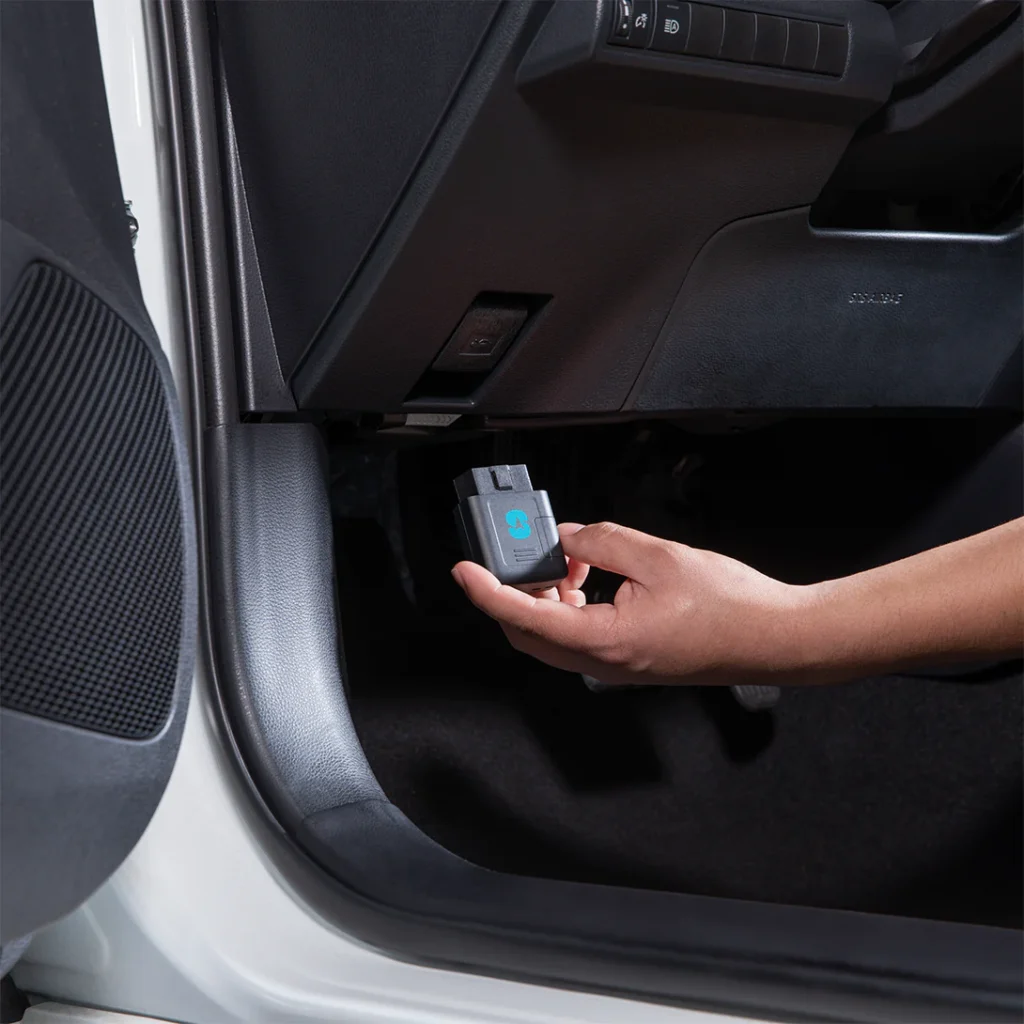
As the name suggests, these are trackers that connect to a car’s OBD port. In 1996, the OBD-II specification was made compulsory for all cars that are sold in the US.
The OBD port is typically located under the driver-side dashboard under the steering wheel column. However, the port could be located under the passenger-side dashboard in rare cases.
Bouncie 4GLTE GPS, Vyncs GPS, and LandAirSea Sync are some of the popular OBD GPS car trackers. You can plug these devices into the vehicle’s OBD port. If the port is missing or incompatible with large trucks, some brands offer attachment accessories.
These trackers do not need a separate battery; they utilize the vehicle’s battery. You can view location updates on your desktop or phone.
The distinguishing factor of these trackers is that they provide information about vehicle health. For example, you can get alerts when the fuel level is low, the check engine light is on, or the battery is low. This way, you can take care of maintenance issues before they become a problem.
2. Hardwired GPS Trackers
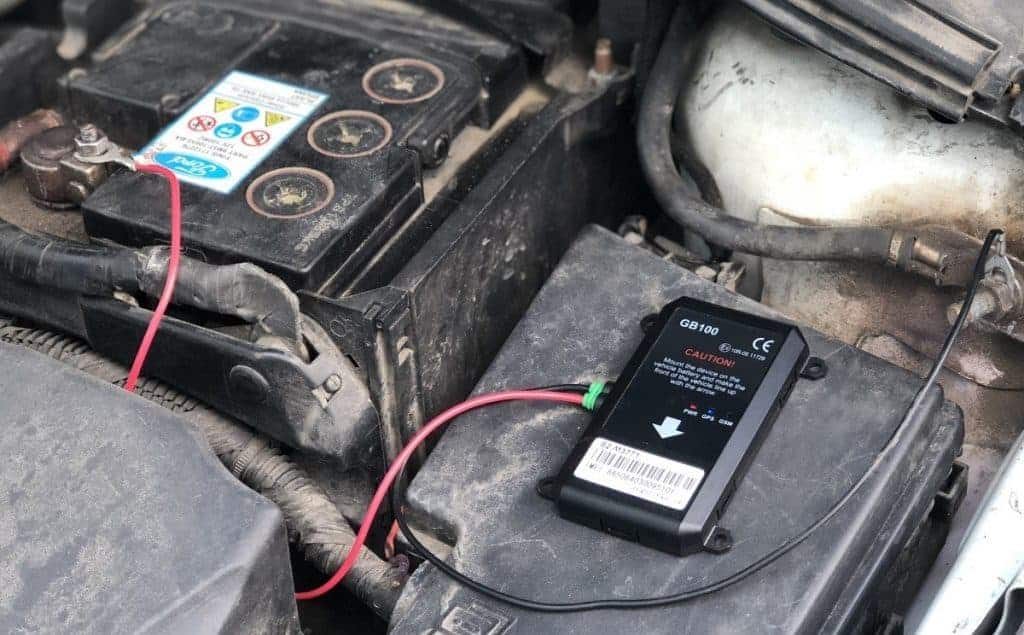
If you need location and vehicle data while being discreet, then consider investing in a hardwired GPS tracker. Depending on the brand, the tracker may have two to three wires that you will have to connect under the car’s dashboard.
These trackers typically take the longest to install. OBd and battery-powered trackers can be installed in minutes, while hardwired trackers can take up to an hour. If you are unsure about installation, please consult with a professional.
Spytec and MasTrack offer hardwired GPS trackers. Most devices have an internal battery backup that keeps the tracker running when the ignition is off.
You can use mobile apps or online portals to track your personal car or commercial fleet. Apart from location details, you can get details around speeding, harsh braking, maintenance alerts, accident detection, and towing alerts.
3. Battery-Powered GPS Trackers
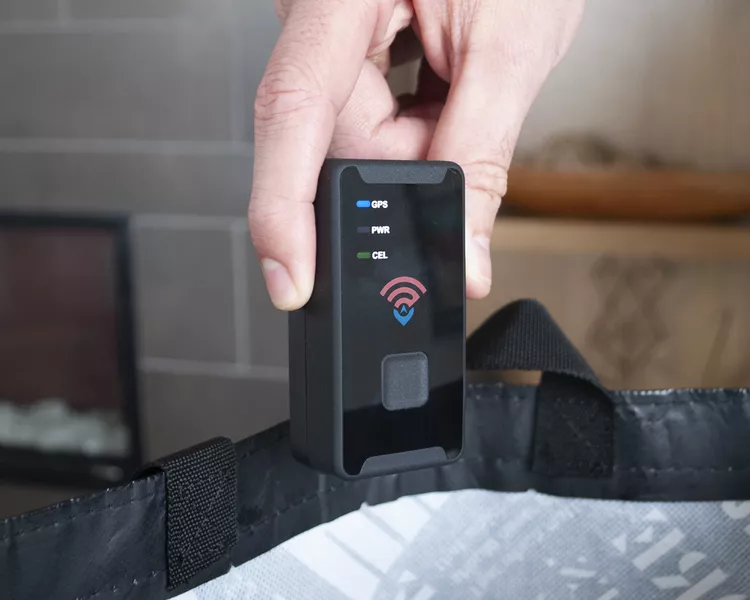
Battery-powered trackers can be used to track people, cars, luggage, or other valuables. These trackers can be placed in different areas of the vehicle. For example, you can place the portable GPS tracker inside the glove box, under the dashboard, seats, or carpets, or near the front or rear bumper.
Avoid extremely enclosed areas or surfaces that can heat up, as it may affect the GPS signal and compromise the structural integrity of the device.
Tracki is one of the smallest and most lightweight portable GPS trackers. Other popular brands include Spytec and LandAirSea.
You will not receive vehicle diagnostic details, but portable trackers can always provide accurate location information. In addition, they are not dependent on whether the car engine is running or off.
You can set geofencing alerts, view trip history in detail, and the user can send out SOS alerts with the click of a button in case of emergencies.
4. Google Maps/ Apple Maps
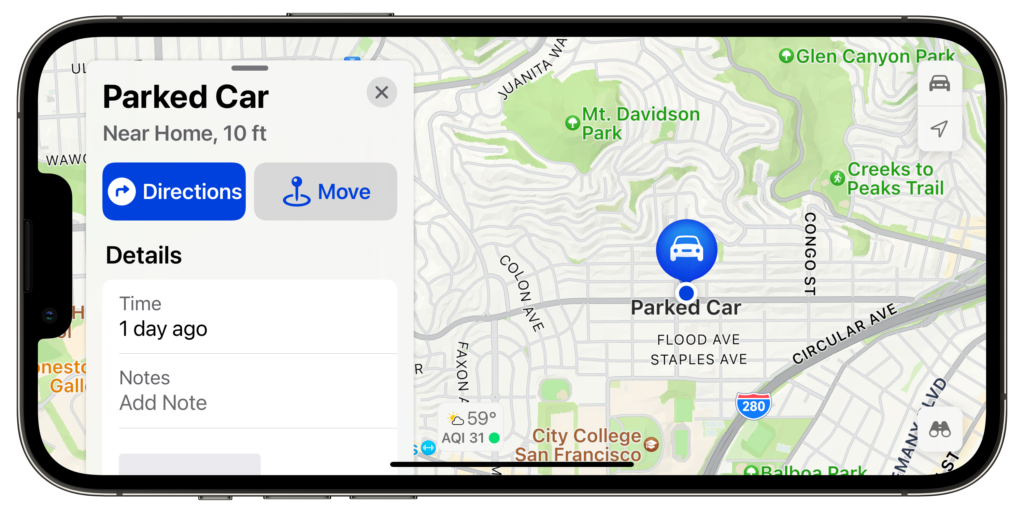
You can use Google or Apple Maps for limited tracking requirements like finding where you parked your car.
Using Google Maps, you can search for parking locations beforehand, save your parked location on the app, and then later, you can ask for directions to the car. You need a mobile device to use this feature.
For Android devices, the steps are pretty straightforward. Once you park your car, open the app, and tap on the blue dot that shows your current location. Select save your parking. Later on, in the search bar, type’ parking location’ and, on the bottom, click on directions for the route.
You can follow the same steps to set the parking location on an iPhone or iPad. To locate your parked location, open the app; on the bottom, you will find ‘Saved parking’ and then ‘Show on map.’
Apple Maps also offers a similar feature. For it to work, your Location Services, Significant Locations, and Show Parked Location should be turned on in settings.
Maps provide limited tracking functionality, but it is one of the cheapest ways to GPS track a car.
5. In-Built Car GPS
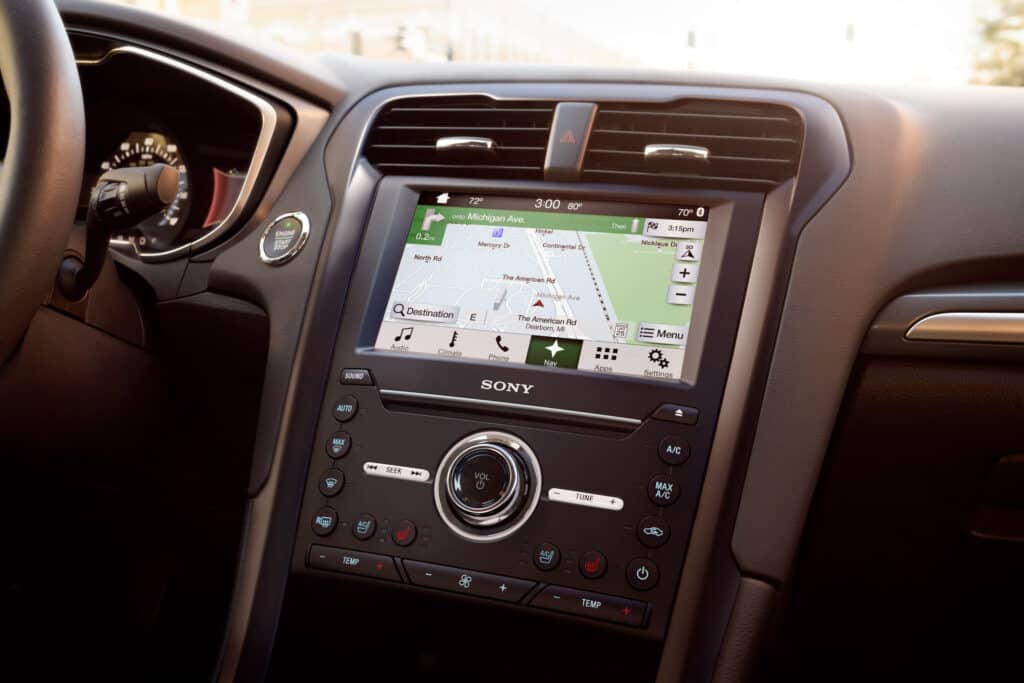
GPS has become an integral part of the automobile industry. Most cars today are equipped with GPS tracking capabilities. You typically have to pay an annual fee to continue using the technology.
For example, if your car is equipped with FordPass Connect, you can use the FordPass app to stay connected to your vehicle. You can track its location, remotely stop, start, lock, or unlock, and also check fuel and oil life.
Similarly, Uconnect offers vehicle-branded apps for Chrysler, Jeep, Dodge, Ram, and Wagoneer. Then you have BMW Assist for BMW and Mbrace for Mercedes. All these apps make it easier to find your car in crowded locations.
They also offer additional services like roadside assistance, smartphone connectivity, vehicle health alerts, intrusion alerts, hands-free calling, and more.
6. Mobile Apps
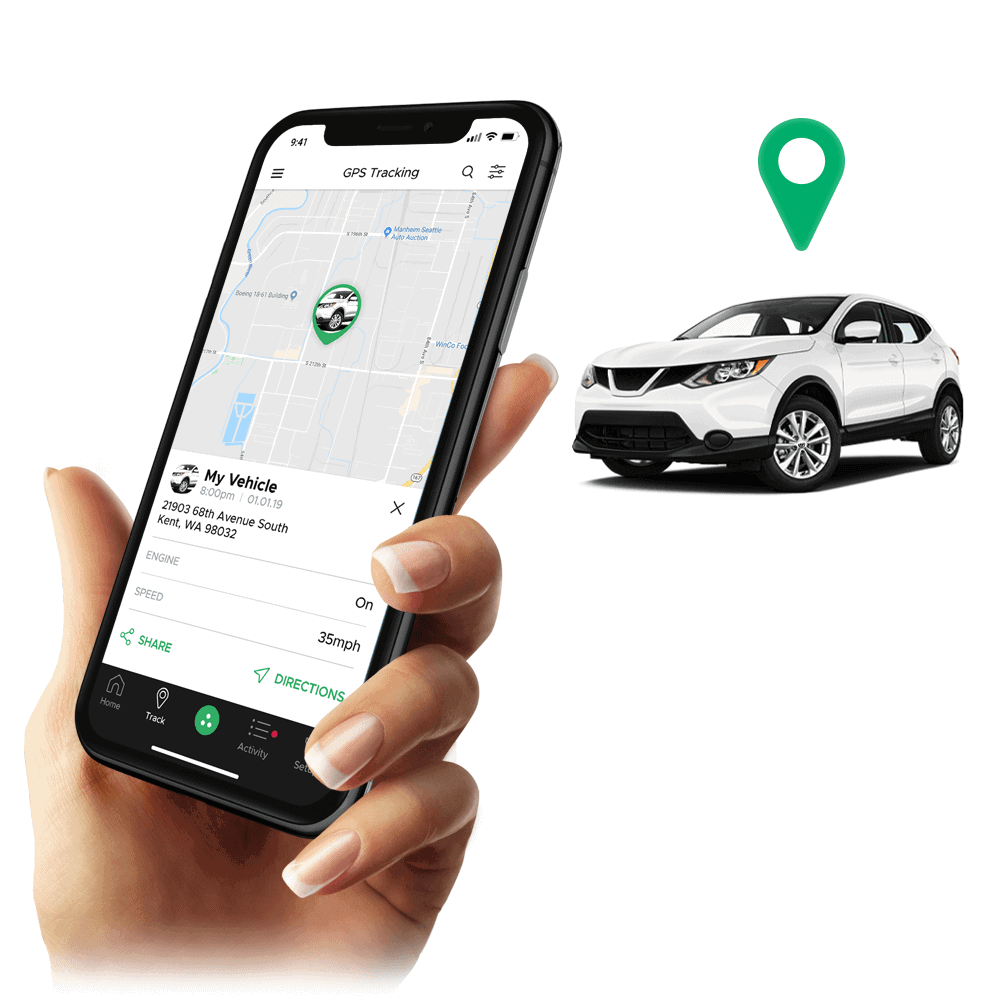
There are several mobile apps available that you can use to track your car. You will have to place your phone inside the car. You can buy a new phone or use your old phone. Either way, a phone with basic GPS and cellular functionality should suffice for these apps.
You will use your primary phone to track and monitor the app. It must be paired with the secondary phone you will place in the car. You can find where you parked your car, track your car, set boundaries, and get instant alerts.
Some popular and highly-rated apps you can use to track your car are Find My Car, Spotngels, AirDroid, and Parked Car Locator.
Reasons You Need A GPS Tracker For Your Car
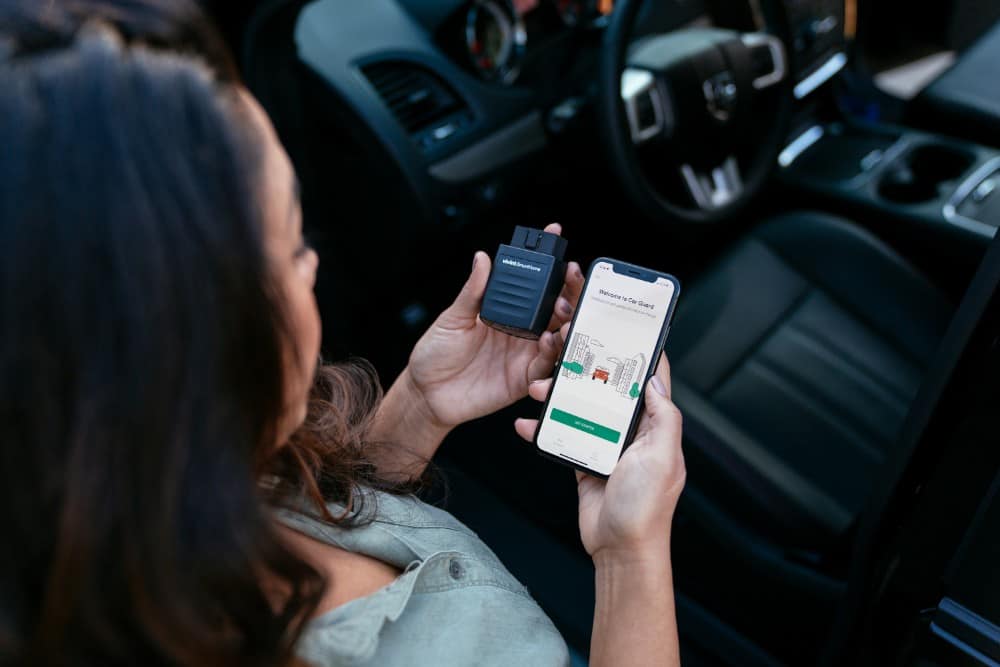
Are you wondering if investing in a GPS tracker or app is a good investment? Here are reasons that may help you decide.
1. Keep Track of Family Members
If your kids or parents are using your car, you can track their location to ensure they have safely reached their destination. If they are not home or are not answering your calls, you can use the app to get their live location.
Most trackers also provide information on driving behaviors like rapid acceleration and hard braking. You can use this information to build better driving habits.
2. Keep Your Car Safe
If your car gets stolen, a GPS tracking device can help with the recovery process. You can set boundaries around your home or office and your usual parking spots and get alerts when the car leaves the perimeter. You can accordingly alert the authorities.
Some advanced trackers are capable of sending intrusion alerts. They may also detect jamming attempts, prevent theft, or help recover the car.
3. Better Manage Your Commercial Fleet
GPS tracking can help better manage your commercial fleet. For example, you can track your delivery vehicles’ routes or how much time drivers spend on trips. You can optimize routes and better utilize resources.
You can track multiple vehicles using a single app. You get access to the app’s reporting capabilities. Buying in bulk can also get you good discounts.
Which GPS Tracker Should You Choose?
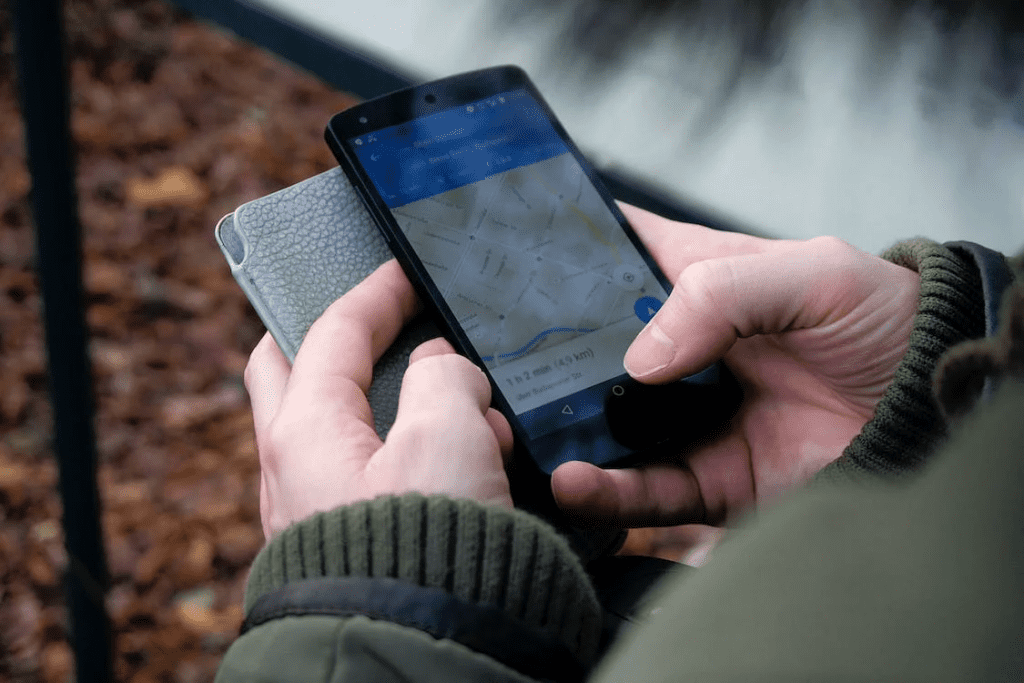
The choice of GPS tracker comes down to your requirement. Some factors that you should consider when looking into GPS trackers are application, features, performance, usability, and cost.
For example, if you want real-time location updates with quick refresh rates of a minute or less, invest in a GPS tracker device. This is one of the pricier alternatives, but a GPS device would provide the most accurate data for such precise applications.
Several budget-friendly tracker options are available with monthly subscriptions from $8 to $30.
If you need data on your vehicle health and location updates, then an OBD or hardwired GPS tracker would be ideal.
If you have trouble finding your car in crowded places or parking lots, then you can find your vehicle using maps or other third-party apps. These apps are way cheaper than GPS trackers but offer limited functionality.
FAQ’s
You can use Google and Apple Maps to locate your car for free. Once you have parked your car, you can save the location on these maps and later ask for directions to the spot.
Placing a GPS device on a car that you do not own without their consent is illegal. In some states like New York, Washington, and Arizona, location tracking without consent falls under stalking laws.
Several budget-friendly GPS trackers provide accurate location details and frequent updates. Tracki and Bouncie are examples of affordable car trackers that deliver results.
A GPS tracker can cost anywhere from $30 to $100+. You will also have to purchase a subscription plan to use the tracker, which can cost around $100 to $300+. If you are happy with the tracker performance, opt for multi-year plans to get discounts.
OBD and hardwired GPS trackers primarily rely on the vehicle’s battery to work. Sometimes, the hardwired tracker can have a backup battery that lets them work when the vehicle ignition is off.
Summary
A GPS tracking device or an app can give parents peace of mind, as they can keep an eye on where their kids or elderly parents are. It gives business owners better tools to manage their fleet and employees. Or it can help individuals find their car’s parking space.
You could invest in an OBD, hardwired, or battery-powered GPS tracker. With these devices, you could enjoy benefits like live tracking, geofences, vehicle health, accident detection, and trip history.
But if you are looking for the cheapest ways to GPS track a car, the answer could be Google, Apple Maps, and third-party location tracking apps.

Stefan Quartemont is an experienced author and expert on GPS technology, with a particular interest in its practical applications. He gained his knowledge of GPS tracking during his studies at Texas A&M University and has since become a regular contributor to TraxFamily.com, providing valuable insights into the latest developments in GPS tracking. Stefan’s expertise and passion for leadership make him a respected authority on GPS technology, and his work with TraxFamily.com is highly beneficial to anyone interested in staying up-to-date on this exciting technology.

